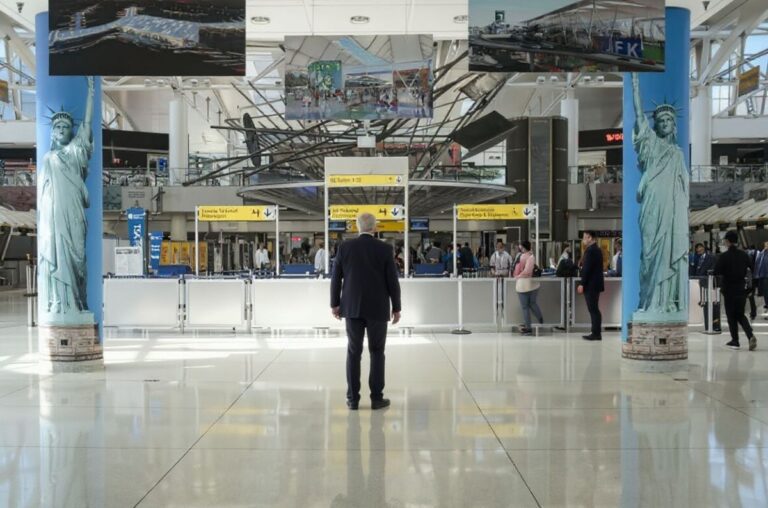
Chinese graduate students and post-doctoral researchers will now face another hurdle to obtain the F-1 student visa or J-1 exchange visa to enter the US in the future under a new US executive order.
An F-1 visa is a student visa while a J-1 is for “exchange visitors”.
The executive order issued on May 29, 2020 reads: “The People’s Republic of China (PRC) is engaged in a wide‑ranging and heavily resourced campaign to acquire sensitive US technologies and intellectual property, in part to bolster the modernisation and capability of its military, the People’s Liberation Army (PLA).”
The “Proclamation on the Suspension of Entry as Nonimmigrants of Certain Students and Researchers from the People’s Republic of China” is effective on June 1.
The order states those students are “detrimental to the interests of the US,” and “their entry should be subject to certain restrictions, limitations, and exceptions.”
Chinese students will not be able to enter the US on F or J visas if they are funded by, are currently employed or study at or have in the past conducted research on behalf of a Chinese entity “that implements or supports the PRC’s ‘military-civil fusion strategy;”. The latter is defined as “actions by or at the behest of the PRC to acquire and divert foreign technologies, specifically critical and emerging technologies, to incorporate into and advance the PRC’s military capabilities,” i.e., military ties.
Those who will not be subject to the restrictions are:
- undergraduate students
- lawful permanent residents
- spouses of US citizens or permanent residents
- foreign nationals who are studying or conducting research in a field involving information that will not contribute to China’s military-civil fusion strategy as determined by government agencies
- foreign nationals whose entry would be in the national interest, as determined by the Secretary of State and the Secretary of Homeland Security, in consultation with the appropriate executive departments and agencies
- foreign nationals whose entry would further important US law enforcement objectives, as determined by the Secretary of State, the Secretary of Homeland Security, or their respective designees, based on a recommendation of the Attorney General or his designee
- members of the United States Armed Forces and any foreign national who is a spouse or child of a member of the United States Armed Forces
- foreign nationals whose travel falls within the scope of section 11 of the United Nations Headquarters Agreement or who would otherwise be allowed entry into the US pursuant to US obligations under applicable international agreements
Chinese nationals currently holding F or J visa holders could have their visas revoked. This is because the order calls upon the Secretary of State to consider such revocations to “mitigate the risk posed by the PRC’s acquisition of sensitive US technologies and intellectual property.”
Within 60 days from the date of proclamation, the Secretary of State and the Secretary of Homeland Security, in consultation with the heads of appropriate agencies, will be reviewing non-immigrant and immigrant programmes.
They will then recommend to the president, through the Assistant to the President for National Security Affairs, any other measures requiring presidential action that would “mitigate the risk posed by the PRC’s acquisition of sensitive United States technologies and intellectual property”.
US educators voice concerns about the order
The proposed Secure Campus Act, which would ban visas to all Chinese nationals seeking STEM studies in the United States, is too biased and harmful to the U.S., says @KissingerInst Director Robert Daly: https://t.co/fUGoCXKAvE
— The Wilson Center (@TheWilsonCenter) June 8, 2020
Educators and university association heads in the US are fearing that this ban on F-1 and J-1 student visa holders from China will take a toll on international research collaborations in the US and affect the country’s ability to attract more international students.
In an email to VOA News, Lynn Pasquerella, president of the Association of American Colleges and Universities, said, “China has been the top collaborator with the US in STEM research. As we are grappling with a global pandemic, international collaboration is more critical than ever.”
“We should also be concerned about the rise of anti-Asian sentiment in the US and the ways in which this legislation holds the potential for the unintended consequence of creating a permission structure for xenophobic attitudes and actions.”
Dr. Esther D. Brimmer, executive director and CEO of NAFSA: Association of International Educators, said: “As we await further details on how this new proclamation will be implemented, we are concerned about the effects that it will have on international education and vital research cooperation.
“Policies should be carefully crafted to protect national security, without extinguishing the spark of innovation. Sweeping policies can have the disastrous impact of fueling discrimination. That is deeply troubling and the antithesis of what we believe as a country, that all are created equal.”
Liked this? Then you’ll love…
Fact check: Chinese students in Australian universities caught in political crossfire







